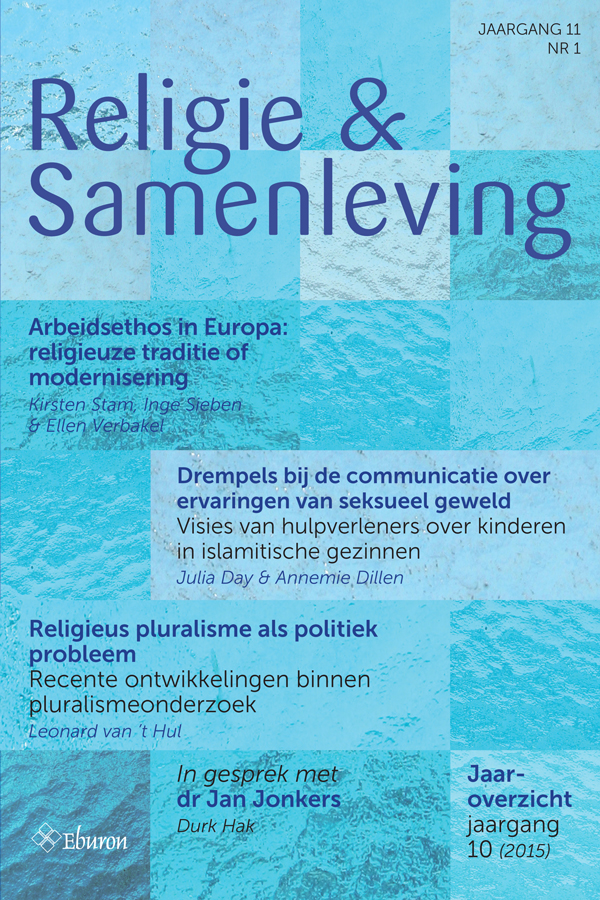Drempels bij de communicatie over ervaringen van seksueel geweld
Visies van hulpverleners over kinderen in islamitische gezinnen
DOI:
https://doi.org/10.54195/RS.12195Samenvatting
This article is based on qualitative empirical research conducted among social workers/therapists in Flanders/Brussels who have experience in working with children in Muslim families who have been the victims of sexual abuse. The fundamental question underlying this research is whether elements can be identified that are particular to children from Muslim families. Social workers/therapists have indeed discovered differences. This article brings together the perspective of caregivers and the results of an investigation of the relevant literature. Honour and shame are concepts that contribute to taboos surrounding sexual abuse within many Muslim families. For example, great importance is attached to safeguarding the virginity of girls. Social workers/therapists also refer to the shame associated with loss of manliness among abused boys. Talking about sexual abuse incites certain fears that are specific to children from Muslim families: children are afraid of not being believed, of being rejected, and of no longer finding a marriage partner. Moreover, there is sometimes fear of revenge. The importance of family structures was also clearly expressed. Family ties often reach further than the nuclear family. While members of the extended family can be used as a resource, they are often also associated with fear of revenge and shame. Certain role patterns are likewise aspects that influence the provision of aid and assistance following sexual abuse. The results of this research can support social workers and therapists in being attentive specifically to the sexual abuse of children, and to consider Islamic cultural and religious dimensions and experiences.




